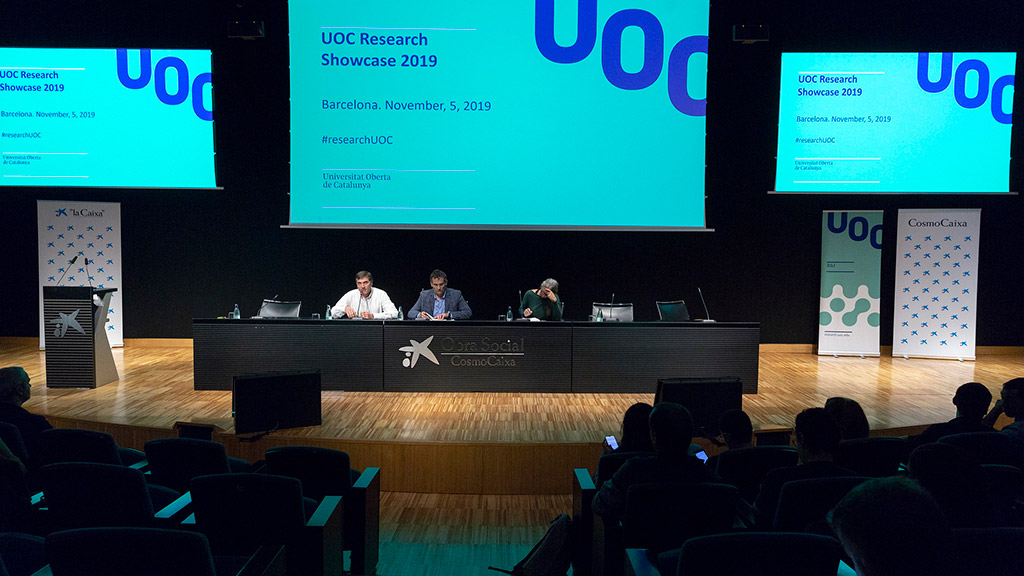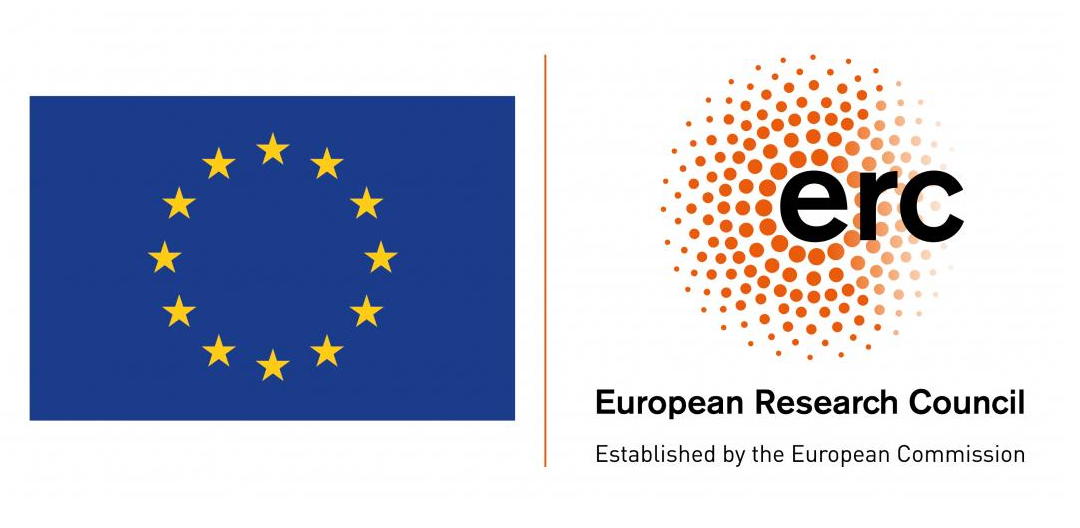UOC research show consolidated growth
The University reviews its research activity with the data for 2019The annual external funding received for research doubles the 2014 figures

In 2019, the UOC received more than 4.2 million euros in external funding for research and innovation projects. This is just one of the figures that summarizes the University's activity last year, taken from the overview submitted to the Research and Innovation Committee. In fact, according to the CYD ranking, the UOC leads the field in research by online universities. As Marta Aymerich, Vice President for Strategic Planning and Research, pointed out in a recent interview, knowledge and research are crucially important, as the present pandemic has shown.

More researchers and recognized groups
Using indicators provided by the Strategic Planning Office, Research and Innovation and Library and Learning Resources, the overview highlights the quantitative growth of research at the UOC, with a comparison between 2014 and 2019.
As an illustration of the growth experienced in the last five years, the University's Research and Innovation staff has increased from 387 professionals in 2014 to 510 last year, giving a growth rate over 31%. Many of these researchers work in the research groups within the faculties or the Internet Interdisciplinary Institute (IN3). Of the 46 research groups existing in 2019, 42 were recognized by the Government of Catalonia in its research group support (SGR) call, compared with 26 out of 46 in 2014. In addition, the number of chairs has increased from four in 2014 to seven in 2019.
External funding doubles
External research funding during the last five years has also shown a positive trend. In 2019, the annual funds obtained amounted to more than 4.2 million euros, almost double the figures for 2014, when more than 2.1 million euros were obtained. This figure confirms the sustained growth in funding during this period. The peak in 2018, amounting to over 5.3 million euros, was due to the approval of the European Research Council (ERC) Starting Grant project, endowed with 1.5 million euros and coordinated by the researcher Diana Roig-Sanz, leader of the Faculty of Arts and Humanities-IN3 Global Literary Studies (GlobaLS) research group, and the authorization of the UOC Valorization and Transfer Unit's Strategic Plan (PETER), endowed with more than 1.5 million euros.
The funding received during 2019 was distributed among 99 approved projects, compared with 70 in 2015. Of these, 21 were international projects. In aggregate terms, the 279 research projects in progress in 2019 accounted for more than 15.2 million euros, compared with slightly above 5.4 million euros corresponding to 177 active projects in 2014. One of the reasons for this growth has been the progressive increase in the number of proposals for research projects submitted to the funding bodies: 290 in 2019, compared with 228 in 2014.
Scientific output
More researchers, more consolidated groups and more funding to undertake more research projects have also led to a parallel increase in the scientific output published by the UOC's researchers during the last five years. While 275 scientific papers authored or co-authored by a UOC member were published in 2014, this figure had increased to 472 in 2019, representing an increase of more than 71%. Out of this total, 48% of the UOC's indexed papers published in 2019 have been cited by other authors, and 37% have been signed with international co-authorship. According to the Library for Research, more than 4,000 scientific papers authored by UOC researchers have been published between 1995 and 2019.
The scientific output also includes the doctoral theses performed at the University. As was announced in February, the Doctoral School has launched four new programmes, giving a current total of 8 programmes. Up until 2019, 193 doctoral theses had been defended at the UOC.
Knowledge exchange
The UOC's knowledge exchange has also grown in recent years, among other things thanks to the approval of the aforementioned Strategic Plan (PETER), endowed with 1.5 million euros co-funded with European ERDF funds. Thus, as shown by the overview of outcomes, the UOC currently has three spin-offs from its R&I activity, namely, the pioneering Open Evidence; Care Respite, developed jointly with the UAB; and, most recently, Immersium Studio. Another significant knowledge transfer indicator is the increase from 4 current patents held by the UOC in 2014 to 18 in 2019.
* Diana Roig-Sanz project has received funding from the European Research Council (ERC) under the European Union’s Horizon 2020 research and innovation programme (grant agreement No 803860).

** The University's Knowledge Transfer and Value Creation Strategic Plan (PETER) is supported by the Catalan Secretary of Universities and Research, of the Catalan Ministry of Economy and Knowledge, and it is cofunded by the European Regional Development Fund (ERDF).


UOC R&I
The UOC's research and innovation (R&I) are helping 21st-century global societies to overcome pressing challenges by studying the interactions between ICT and human activity, with a specific focus on e-learning and e-health. Over 400 researchers and 48 research groups work among the University's seven faculties and three research centres: the Internet Interdisciplinary Institute (IN3), the eLearn Center (eLC) and the eHealth Center (eHC).
The United Nations' 2030 Agenda for Sustainable Development and open knowledge serve as strategic pillars for the UOC's teaching, research and innovation. More information:research.uoc.edu.
Press contact
-
Editorial department
